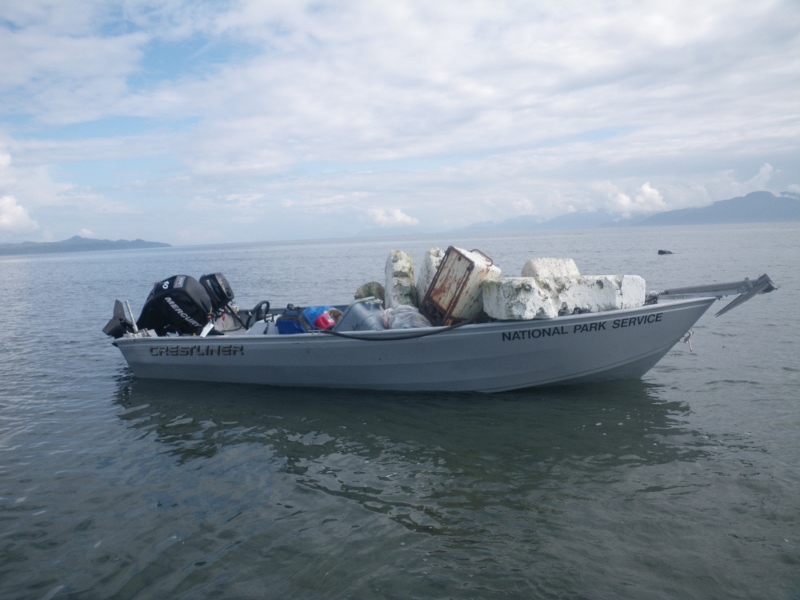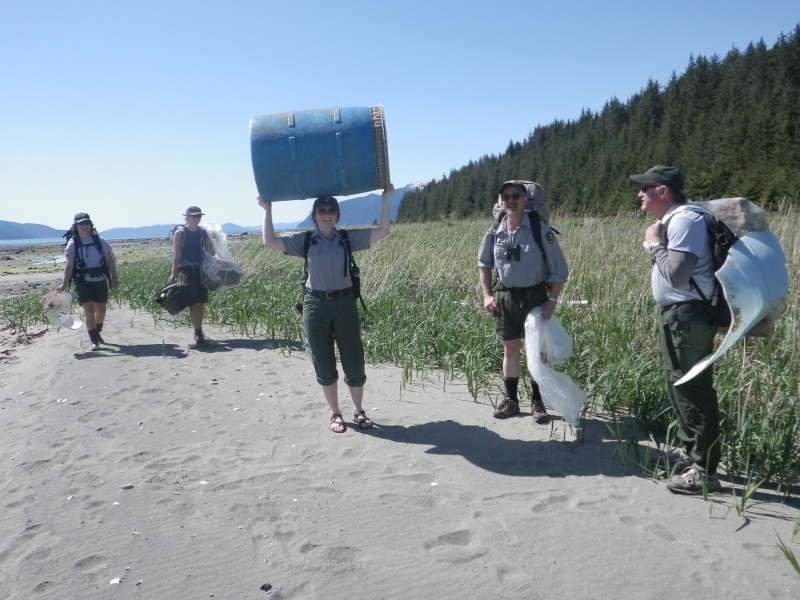
A NPS skiff filled with debris collected between Bartlett Cove and Gustavus.

Park Service personnel collected beach trash during their annual hike around Point Gustavus.
Thanks to everyone for helping clean up our beaches! Let's all be mindful of our use and disposal of plastic because of its longevity in the the environment, its tendency to entangle marine life, and degrade into microplastics. Microplastics, which concentrate persistent organic pollutants, are becoming pervasive in the marine environment. They are ingested by a variety of aquatic organisms including invertebrates, fish, birds and mammals. Adverse biological and physiological effects of this ingestion have been documented in a variety of species. Despite the fact that ecological impacts are currently relatively unknown, evidence suggests that microplastics may be transferred up the food chain resulting in bioaccumulation and biomagnification (Lusher 2015). Learn more about the transfer of microplastics into the food chain (pdf).
Citation
Lusher, A. (2015). Bergmann, M. et al. (eds.), Marine Anthropogenic Litter, DOI 10.1007/978-3-319-16510-3_10
